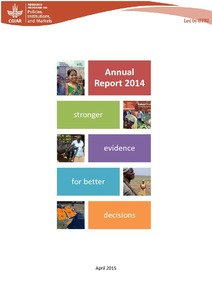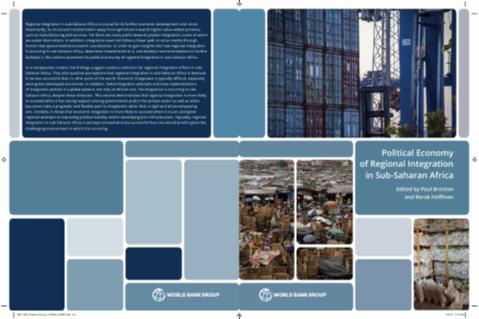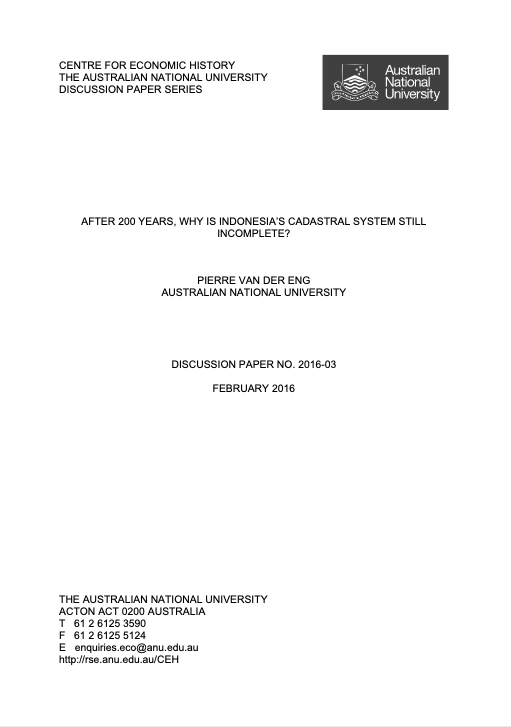Formalisation of land rights in Myanmar
Documents and analyses on land tenure in Burma/Myanmar.....
"1.Reconcile legality and legitimacy through clear legal recognition of existing
acknowledged rights, whatever their origin (customary or statutory) or nature
(individual or collective, temporary or permanent).
2.Initiate widespread debate on the choice of society that the land policies will
serve (and target), the opportunities for formalisation, how it will be implemented
and its possible alternatives.
3.Build consensus between all the actors concerned (central and local
Land Tenure Journal 2015/02 - Revue des questions foncières 2015/2
The Land Tenure Journal is a peer-reviewed, open-access flagship journal of the Climate, Energy and Tenure Division (NRC) of the Food and Agriculture Organization of the United Nations (FAO). The Land Tenure Journal, launched in early 2010, is a successor to the Land Reform, Land Settlement and Cooperatives, which was published between 1964 and 2009. The Land Tenure Journal is a medium for the dissemination of quality information and diversified views on land and natural resources tenure. It aims to be a leading publication in the areas of land tenure, land policy and land reform.
Political Economy of Regional Integration in Sub-Saharan Africa
Regional integration in sub-Saharan Africa (SSA) is crucial for its further economic development and, more importantly, its structural transformation away from agriculture towards higher value-added activities, such as manufacturing and services. Yet there are many paths towards greater integration, some of which are easier than others.
After 200 Years, Why is Indonesia's Cadastral System Still Incomplete?
This paper discusses Indonesia’s experience with establishing a uniform cadastral system in rural areas since the idea was first mooted in the early 19th century. Until 1961, a formal cadastre that identified, measured, registered and certified land titles existed only in urban areas. A cadastre for rural land did not start until after the 1960 Agrarian Law. Until then, the village-based land tax registers acted as a substitute cadastral register in areas subject to land tax.
The Condominium Law - Pyidaungsu Hluttaw Law No. 24/2016 - စုပေါင်းပိုင်အဆောက်အအုံဆိုင်ရာဥပဒေ (Burmese မြန်မာဘာသာ)
Provisional English title.
Republic of Yemen
Part one of the report provides an
overview of the economy. It has one chapter (chapter one),
which provides an overview of the country’s growth and
macroeconomic performance and challenges and analyzes and
emphasizes the limited dynamism of a rent- and
hydrocarbon-cursed economy. Part II describes cross-cutting
issues that constrain policy implementation, regardless of
the sectors where they occur. In chapter two, the report
Country Partnership Framework for the Republic of Honduras for the Period FY16 - FY20
Honduras’ recent economic performance
has been positive, especially taking into account the global
economic context. Real Gross Domestic Product (GDP) growth
accelerated from 2.8 percent in 2013 to 3.1 percent in 2014
and 3.6 percent in the first half of 2015. Growth has been
supported by improved terms of trade, higher remittance
inflows and export demand driven by the on-going recovery of
the United States (US), and improved investor confidence.
Do Land Market Restrictions Hinder Structural Change in a Rural Economy?
This paper analyzes the effects of land
market restrictions on structural change from agriculture to
non-farm in a rural economy. This paper develops a
theoretical model that focuses on higher migration costs due
to restrictions on alienability, and identifies the
possibility of a reverse structural change where the share
of nonagricultural employment declines. The reverse
structural change can occur under plausible conditions: if
Land Market Restrictions, Women's Labor Force Participation, and Wages in a Rural Economy
This paper analyzes the effects of land
market restrictions on the rural labor market outcomes for
women. The existing literature emphasizes two mechanisms
through which land restrictions can affect the economic
outcomes: the collateral value of land, and (in) security of
property rights. Analysis of this paper focuses on an
alternative mechanism where land restrictions increase costs
of migration out of villages. The testable prediction of
Tenure Security Premium in Informal Housing Markets
This paper estimates slum residents
willingness to pay for formalized land tenure in Pune,
India. In so doing, it offers evidence that the legal
assurance of slum residents occupancy of their lands could
benefit them. Previous studies have discussed legal and
non-legal factors that substantially influence the tenure
security of residents in informal settlements. However, it
remains unclear to what extent, and how, the assignment of
The Political Economy of Decision-Making in Forestry
The use of the phrase, ‘political
economy’ originates in Adam Smith’s Wealth of Nations and is
also found in the writings of David Ricardo and Karl Marx.
What is presently understood as ‘economics’ was, at that
time, termed ‘political economy’. This was understood to
mean ‘conditions of production organization in
nation-states’ (Acemoglu and Robinson, 2012, Beuran,
Raballand and Kapoor, 2011). Venerable scholars such as





